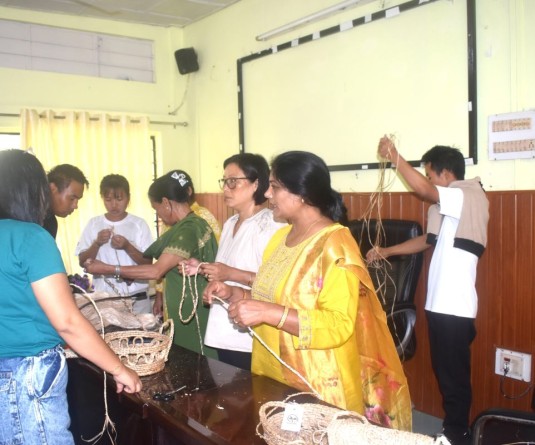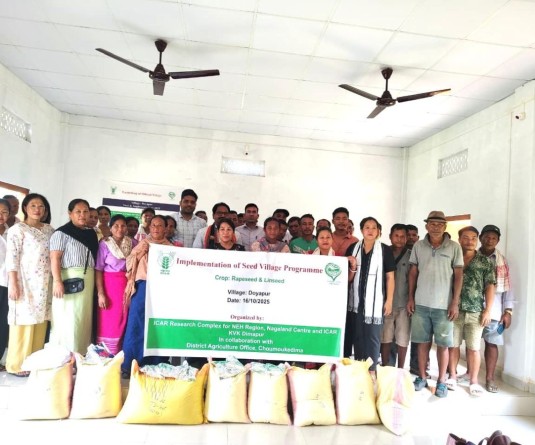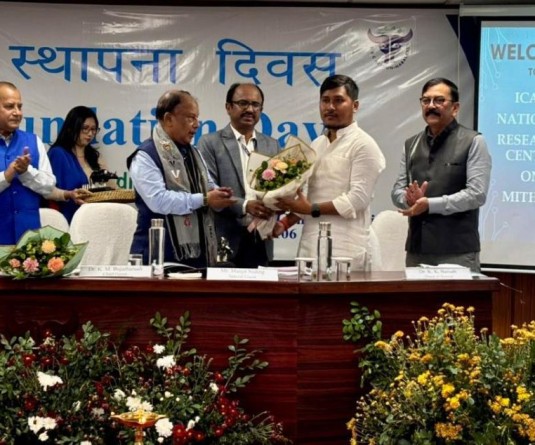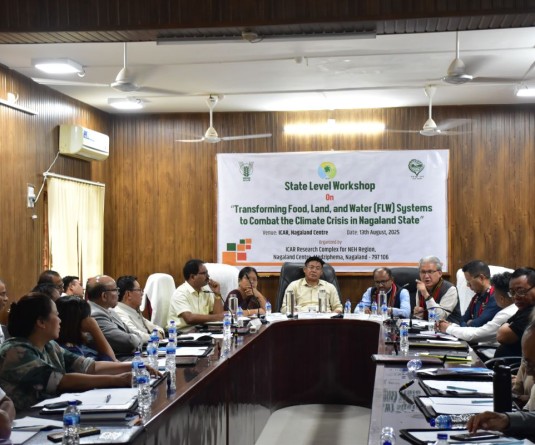Participants with officials during the field day cum farmers’-scientist interaction programme on participatory rice seed production held at Amaluma village of Dimapur district on October 22.
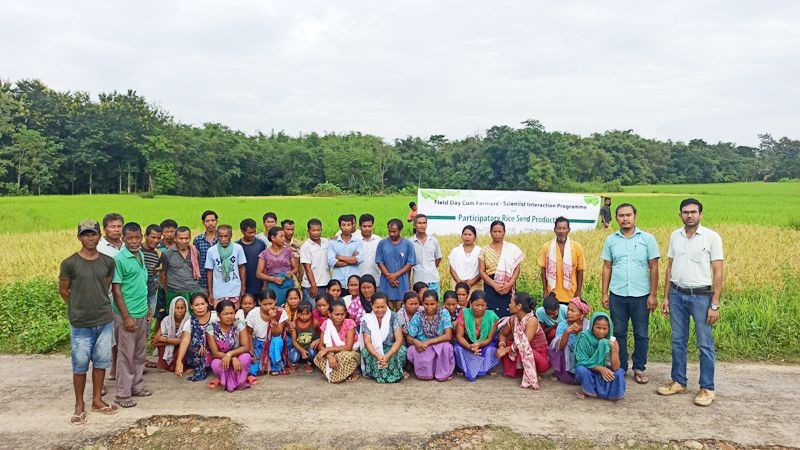
• Seed replacement ratio below 15% in Nagaland
• Rice productivity very low with about 2.3 t/ha in Nagaland
Dimapur, October 24 (MExN): With the objective to show the performance of RCM-9 variety in rice seed production fields and scope of participatory rice seed production in Nagaland, ICAR Nagaland Centre, Medziphema in collaboration with KVK, Dimapur organized a field day cum farmers’-scientist interaction programme on participatory rice seed production at Amaluma village of Dimapur district on October 22.
A press release from ICAR, Nagaland Center Joint Director, ICAR Nagaland Centre stated that seed replacement ratio is below 15% in the state, mainly due to reliance on informal seed system with traditional rice.
Rice productivity of Nagaland is very low with about 2.3 t/ha as compared to national average of 2.7 tonnes/hectares due to use of traditional low yielding landraces and use of impure seeds of old HYVs. Therefore, by increasing the availability of quality seed material of HYVs on time will increase the production and productivity of the state to achieve self-sustenance in rice production.
During the programme, importance and future prospects and know-how on participatory rice seed production was discussed by Dr Harendra Verma, scientist, Plant Breeding and Genetics, ICAR Nagaland Centre, Jharnapani. He encouraged the farmers to participate in the high quality seed production technologies to meet local seed demand.
Dr Roben Singh, SMS, KVK, Dimapur emphasized on use of early and medium duration HYVs of rice (RCM-9) to utilize the residual moisture and to enhance the cropping intensity. As RCM-9 is medium duration variety (125-130 days) so that farmers can harvest it by end of October and in rabi season farmers can be easily takenup various crops such as toria, pea, linseed etc. to enhance the farm income.
Seed of improved potato variety “Pusa Garima” was distributed to the 15 farmers of Amaluma village for potato production.
A farmer- scientist interaction was also conducted in which queries related to pest management and nutrient management was discussed. A total of 54 farmers participated in the programme.


